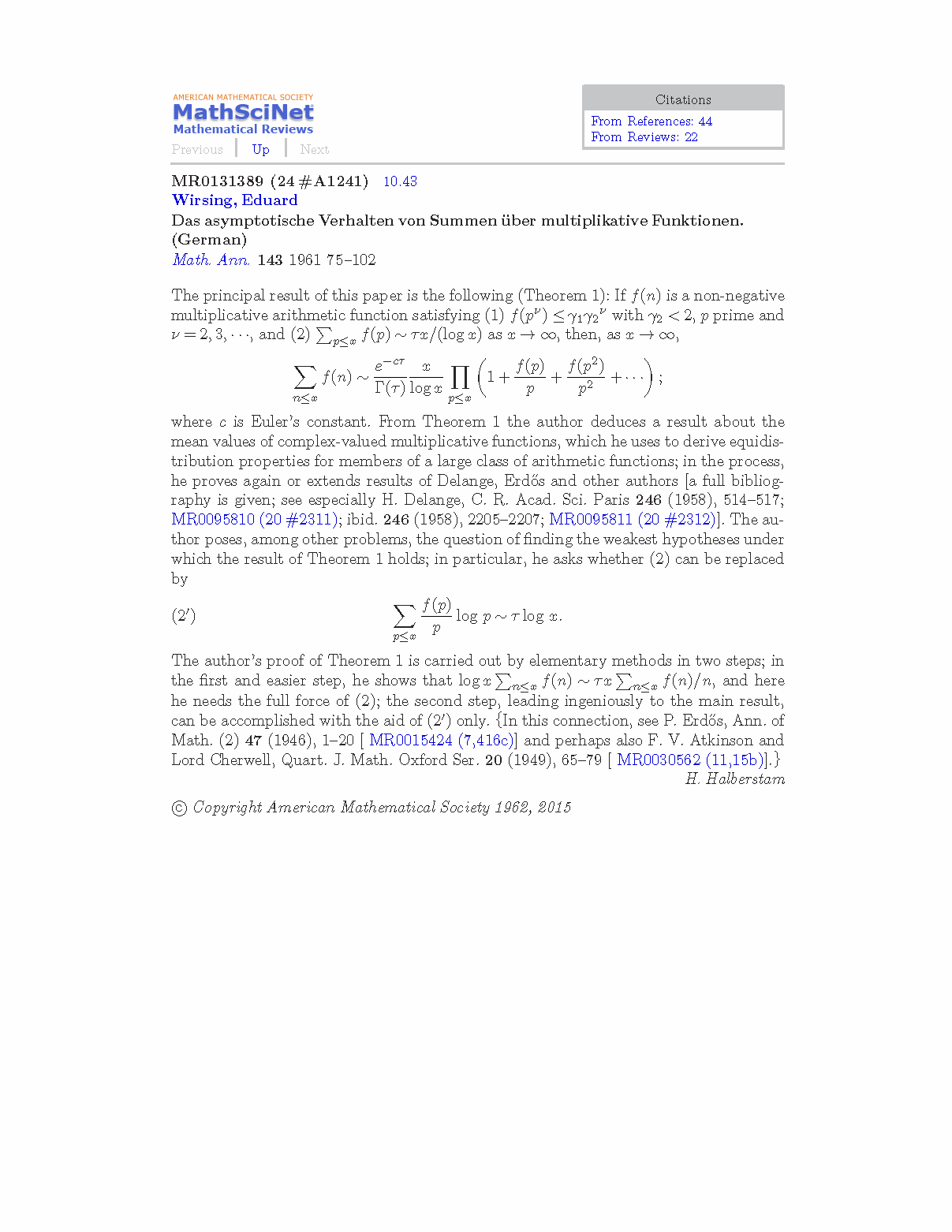Suppose I have a multiplicative function $f(n),$ and I want to understand the behavior of $$ \sum_{n<x} f(n^k), $$ for some integer $k.$ This seems like it should be easy (since the Dirichlet series seems to be just evaluated at $ks$), but it can't be too easy, since, for example, for $f(n) = \mu(n),$ $f(n^k)$ is identically $0$ for every $k>1.$
EDIT I have no idea why this question drew out the haters toengendered such an extenta negative reaction. The The perfect answer was given by socalledfriendDon in the comments to the one answer (this is now the accepted answer): under certain conditions, you have an asymptotic formula for average value of multiplicative functions, as given by Wirsing's theorem. Certain conditions are: positivity, having a mean on primes, and having slow growth on prime powers.
For the function $f(n) = \tau(n^k)$ this gives an average value of $\log^k(x).$ Many of the pooh-poohers gave completely incorrect references. One gave a reference to Erdos' paper from 1952, where Uncle Paul analyzes the behavior of $\tau(P(n))$ where $P$ is an irreducible polynomial (AND, while Erdos' result is correct, his proof is buggy). A better reference (which no-one gave) is a 1939 paper by van der Corput, but that gives bounds, and not asymptotics.
Sigh.

